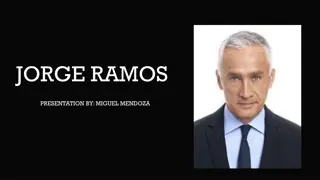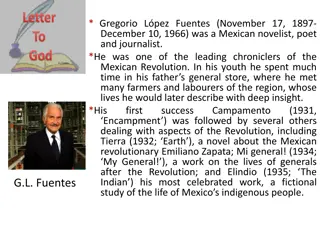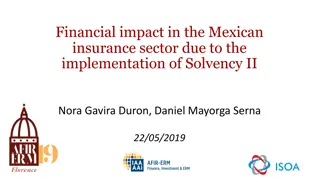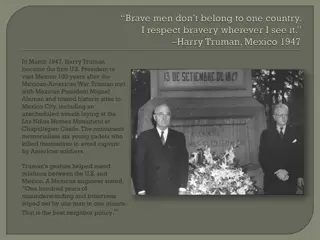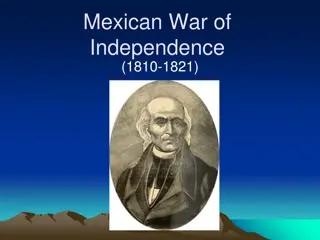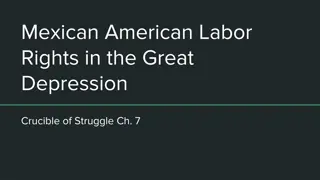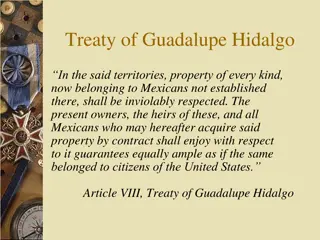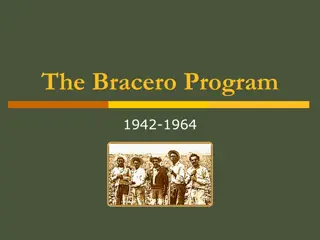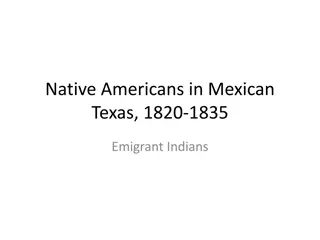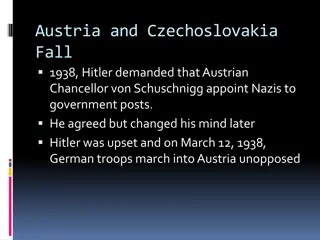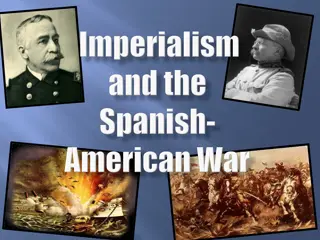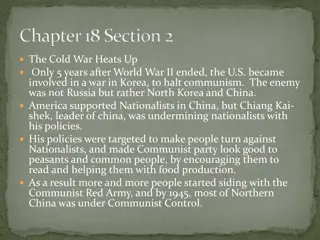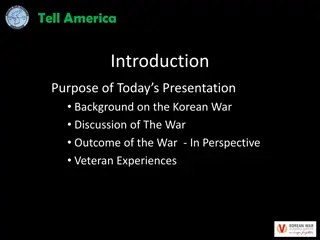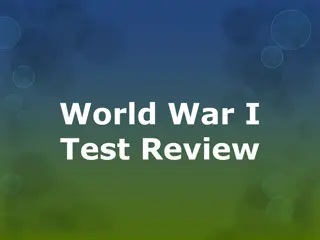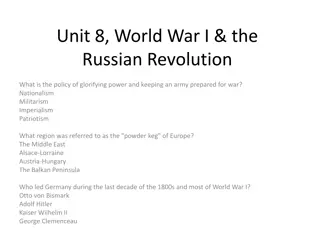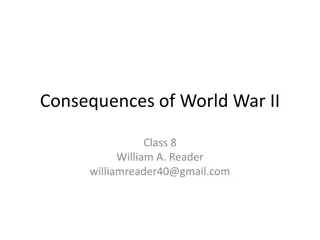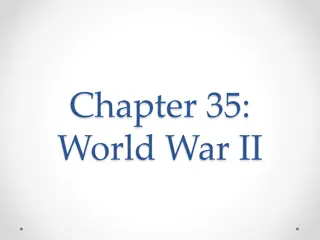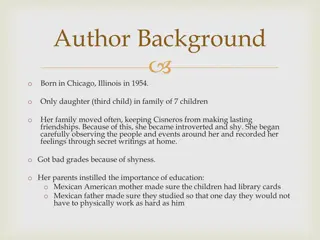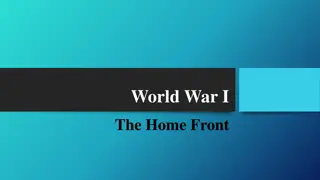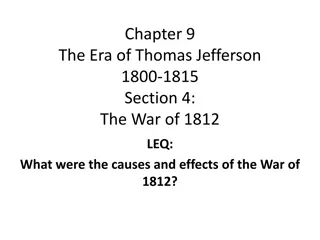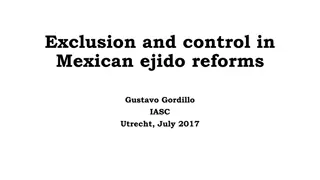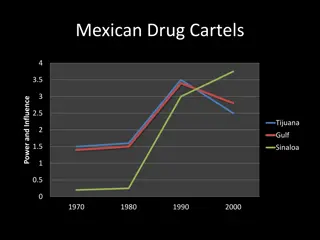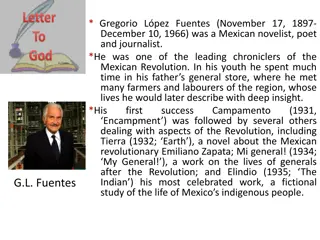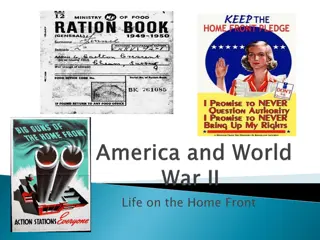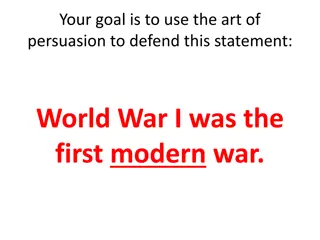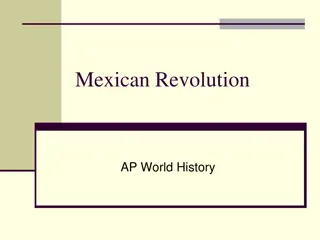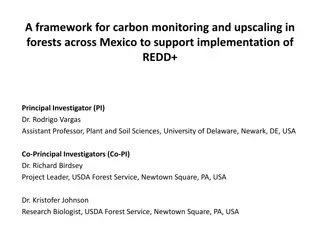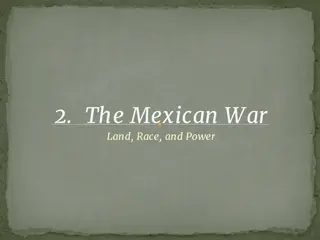❤[PDF]⚡ Civil War Talks: Further Reminiscences of George S. Bernard and His Fel
\"COPY LINK HERE ; https:\/\/getpdf.readbooks.link\/0813931754\n\nRead ebook [PDF] Civil War Talks: Further Reminiscences of George S. Bernard and His Fellow Veterans (A Nation Divided: Studies in the Civil War Era) | Civil War Talks: Further Reminiscences of George S. Bernard and His Fellow Vetera
1 views • 6 slides
Mexican Wholesale Sugar Provider - King Hill Foods
The benefits of reaching out to a Mexican wholesale sugar provider offering diverse packaging options extend far beyond mere convenience. From space efficiency and cost-effectiveness to precision in production and enhanced supply chain management, choosing the right packaging solution can positively
3 views • 4 slides
Mexican Wholesale Sugar - King Hill Food
King Hill Food's Mexican Wholesale Sugar offers premium quality, bulk sugar sourced directly from the lush fields of Mexico. Specializing in large-scale supply, we cater to businesses that demand consistency, reliability, and exceptional taste. Our sugar is harvested using traditional methods and re
0 views • 4 slides
Mexican Wholesale Sugar - King Hill Food
King Hill Food's Mexican Wholesale Sugar offers premium quality, bulk sugar sourced directly from the lush fields of Mexico. Specializing in large-scale supply, we cater to businesses that demand consistency, reliability, and exceptional taste. Our sugar is harvested using traditional methods and re
5 views • 4 slides
The Homefront: U.S. War Production Efforts During World War II
During World War II, the United States mobilized its industries for total war production, converting peacetime factories into facilities for producing planes, tanks, rifles, and more. The U.S. became the Allies' biggest armaments supplier, producing millions of war supplies and significantly boostin
2 views • 25 slides
The Inspiring Journey of Jorge Ramos: Mexican-American Journalist and Author
Jorge Ramos, a renowned Mexican-American journalist and author, was born in Mexico City in 1958. Despite facing challenges in his early life, he pursued education and went on to achieve remarkable accomplishments in journalism. His work has earned him numerous awards, including eight Emmy Awards. Kn
2 views • 7 slides
Insights into Mexican Novelist Gregorio López Fuentes
Explore the life and works of Gregorio López Fuentes, a prominent Mexican novelist, poet, and journalist known for chronicling the Mexican Revolution. Delve into his impactful writings capturing the essence of Mexican history and culture. Discover his notable literary pieces and the profound themes
0 views • 23 slides
Impact of Solvency II on Mexican Insurance Sector
The study examines the financial impact of the implementation of Solvency II in the Mexican insurance sector, focusing on differences between foreign and domestic insurance companies. Data from 92 insurance companies over a period from 2003 to 2018 is analyzed to evaluate changes in performance metr
0 views • 16 slides
Origins of the Cold War: Yalta and Potsdam Conferences 1945
The Cold War's origins stem from the tensions and suspicions between the USSR and the West post-World War II, highlighted through conferences like Yalta and Potsdam. At the Yalta Conference, held in February 1945, crucial decisions were made regarding Germany, Poland, and the UN. The Potsdam Confere
2 views • 10 slides
Insights into World War Two and Adolf Hitler's Role
World War Two started on September 3, 1939, with Britain and France declaring war on Germany. Adolf Hitler's rise to power, initiation of the war, and involvement in the Holocaust are highlighted. The Star of David symbolized Jewish identity under Hitler's rule, and the Holocaust saw six million Eur
0 views • 6 slides
Cinco de Mayo Celebration: History and Traditions
Cinco de Mayo is not Mexican Independence Day but commemorates the Mexican victory over the French in the Battle of Puebla in 1862. The celebration is most vibrant in Puebla, Mexico, and has gained popularity in the US. This day is marked by food, music, dancing, and Mexican customs, with parades he
0 views • 8 slides
Harry Truman's Historic Visit to Mexico in March 1947
In March 1947, President Harry Truman visited Mexico, marking the first visit by a U.S. President since the Mexican-American War. Truman's gesture at the Los Niños Heroes Monument helped mend relations between the two countries. The visit included meetings with Mexican officials, tours of historic
0 views • 9 slides
Mexican War of Independence (1810-1821): A Historical Journey
The Mexican War of Independence (1810-1821) was a tumultuous period marked by leaders like Miguel Hidalgo and Jose Morelos who fought against Spanish rule in Mexico. Despite setbacks, the struggle for independence persisted, eventually culminating in the declaration of Mexico's independence and the
0 views • 10 slides
Analysis of W.B. Yeats' Poetry During World War I
W.B. Yeats' poetry during World War I reflects a unique perspective on the conflict, as seen in works like "An Irish Airman Foresees His Death" and "On Being Asked for a War Poem." Delving into themes of sacrifice, duty, and the futility of war, Yeats offers a contrasting view to the graphic realism
0 views • 7 slides
Mexican-American Labor Rights in the Great Depression: Struggles and Activism
Mexican Americans faced economic hardship during the Great Depression, leading to labor activism and unionization. Children participated in family work, while LULAC and the CIO played key roles in advocating for labor rights. Women, such as Emma Tenayuca, fought for better conditions in various indu
0 views • 21 slides
Mexican Americans' Struggle and Resilience Post Treaty of Guadalupe Hidalgo
Mexican Americans faced challenges post the Treaty of Guadalupe Hidalgo including discrimination, isolation, dramatic land loss, resistance against Anglo racism, and strategies like accommodation and assimilation in maintaining their cultural identity and land holdings.
0 views • 13 slides
The Bracero Program: A Historical Perspective
Foreign contract labor program, the Bracero Program, was initiated in 1942 during WWII between the US and Mexican governments, bringing 4.6 million workers to the US between 1942 and 1964. The program addressed labor shortages but also led to exploitation and mistreatment of Mexican migrant workers.
0 views • 27 slides
Emigrant Indians in Mexican Texas: 1820-1835 Overview
Emigrant Indians, including groups like Alabamas, Cherokees, and Shawnees, settled in Mexican Texas between 1820 and 1835. The timeline highlights key events such as the Fredonian Rebellion and the Cherokee War leading to the removal of Cherokee from Texas.
0 views • 14 slides
Timeline of Key Events Leading to World War II
In the years leading up to World War II, a series of significant events unfolded in Europe. From Hitler's demands and annexations to the signing of pacts and the invasion of Poland, tensions escalated rapidly. The Munich Agreement, German offensive in Poland, declaration of war by France and Britain
0 views • 12 slides
The Impact of the Korean War on Global Relations
The Korean War, often dubbed the "Forgotten War," had significant implications on global politics and relationships. This conflict was characterized by a mix of conventional and guerilla warfare tactics. China's involvement in the war had a profound impact on its relations with the U.S. and the U.S.
1 views • 14 slides
The Spanish-American War: Origins and Impact
The Spanish-American War was fueled by a combination of factors including economic struggles, imperial ambitions, and sensationalist journalism. Theodore Roosevelt's stance on war, coupled with the desire for Cuba's independence from Spain, led to a call for war in the late 1890s. Yellow journalism
0 views • 18 slides
The Cold War Heats Up: Korea and China Conflict
The post-World War II era saw the U.S. engaging in the Korean War to combat communism, facing off against North Korea and China instead of Russia. Conflict in China between the Nationalists led by Chiang Kai-shek and the Communists under Mao Tse-tung intensified, with Chiang's authoritarian rule spa
0 views • 14 slides
Causes and Outbreak of World War I
Various factors such as nationalism, imperialism, militarism, and the assassination of Archduke Francis Ferdinand led to the outbreak of World War I. The tensions in Europe escalated as countries formed alliances and mobilized for war. The conflict resulted in early battles like the Battle of Marne
0 views • 23 slides
Overview of the Korean War: Background, Discussion, and Outcome
This presentation delves into the background of the Korean War, highlighting the historical context from the Korean Peninsula's division after World War II to the outbreak of the conflict in 1950. It discusses the involvement of North and South Korea, as well as key players like the United States, t
0 views • 15 slides
World War I Test Review and Historical Overview
Learn about the key terms and concepts related to World War I, including militarism, nationalism, neutrality, propaganda, espionage, and more. Explore the long-term causes of the war, the immediate trigger, the Central Powers and Allied Powers involved, as well as important events like the Zimmerman
0 views • 13 slides
World War I and the Treaty of Versailles: Key Events and Consequences
The policy of glorifying power and militarism, the tensions in the Balkan Peninsula, Germany's leadership, causes of the United States' entry into World War I, impact of unrestricted submarine warfare, transition to total war, the end of the war with an armistice, the Treaty of Versailles assigning
0 views • 10 slides
The Impact of World War II on Japan and the Emergence of the Cold War
World War II had far-reaching consequences on Japan, leading to significant naval battles, intense fighting in Okinawa, and ultimately, the country's surrender following the atomic bombings of Hiroshima and Nagasaki. The post-war period saw the emergence of the Cold War as tensions rose between the
2 views • 63 slides
World War II Home Front Contributions and Impact
The chapter highlights the significant roles played by various groups during World War II on the home front. It covers topics such as the Selective Service Act, War Productions Board, women in the workforce, African Americans' contributions, Native American code talkers, Mexican-American involvement
0 views • 11 slides
The Inspiring Journey of Sandra Cisneros: A Mexican-American Author
Sandra Cisneros, born in Chicago in 1954, overcame shyness to become a celebrated author, known for works like "The House on Mango Street." Drawing from her dual Mexican-American heritage, she sheds light on the immigrant experience in the United States. Despite facing challenges, Cisneros found her
0 views • 11 slides
Cultural Connections: Me, Frida and the Secret of the Beautiful Peacock Ring
Paloma Marquez travels to Mexico City to uncover memories of her deceased father and embarks on a quest with twin siblings to find Frida Kahlo's ring. The novel intertwines mystery with Mexican cultural traditions, inviting readers to delve into their roots through a captivating narrative. Dive into
0 views • 7 slides
America's Role on the Home Front during World War I
During World War I, America witnessed significant changes on the home front as the government took on new powers to regulate industry, agriculture, and public opinion. Women and minorities played crucial roles, voluntary rationing was embraced, and opposition by conscientious objectors was met with
0 views • 24 slides
The War of 1812: Causes, Events, and Effects
The War of 1812 was influenced by issues such as British impressment of American sailors, arming Native Americans, and trade restrictions. Despite opposition, President James Madison declared war in 1812. The conflict marked a period of American nationalism, with War Hawks pushing for war and Doves
1 views • 16 slides
Mexican Ejido Reforms: Exclusion and Control Dynamics
Explore the intricate dynamics of exclusion and control within Mexican ejido reforms, revealing historical backgrounds, the essence of ejido rural communities, the dual facets of ejidos, pre-1991 rules, state interventions, and the comprehensive reform package leading to the end of land redistributi
0 views • 22 slides
Mexican Drug Cartels: Power and Influence Through Decades
Explore the rise and influence of Mexican drug cartels such as Tijuana, Juarez, Gulf, and Sinaloa from the 1970s to the 2010s. Delve into their history, cultural impact, and current trends, shedding light on the complex dynamics shaping the world of drug trafficking in Mexico.
0 views • 9 slides
Exploring the Works of Mexican Novelist Gregorio López Fuentes
Gregorio López Fuentes, a prominent Mexican novelist, poet, and journalist, was renowned for chronicling the Mexican Revolution through his insightful writings. His works delved into various aspects of the Revolution, offering a deep understanding of the lives of farmers, laborers, and indigenous p
0 views • 23 slides
Life on the Home Front during World War II
During World War II, significant social changes occurred on the home front in the United States. Women and minorities entered the workforce to support the war effort, leading to the iconic figures like Rosie the Riveter. A. Philip Randolph organized African Americans to demand fair employment practi
0 views • 11 slides
World War I was the first modern war.
World War I marked a significant shift in warfare techniques, technology, and global impact, solidifying its status as the inaugural modern war. The innovations in weaponry, tactics, communication, and logistics during this conflict set the stage for the evolution of warfare in the 20th century and
0 views • 5 slides
Mexican Revolution
Causes of the Mexican Revolution under Porfirio Díaz's rule, start with Francisco Madero's election, spread to include Pancho Villa and Emiliano Zapata, continuation with Huerta's overthrow and Carranza's leadership, and the involvement of women in the revolution. The revolution led to significant
0 views • 16 slides
Framework for Carbon Monitoring and Upscaling in Mexican Forests
This project focuses on standardizing methodologies, characterizing uncertainties, and identifying hot spots for REDD+ implementation in Mexican forests. It involves intensive monitoring at various sites across Mexico to collect data on vegetation, biomass, and soil. The study sites include diverse
0 views • 12 slides
The Mexican War: Land, Race, and Power
This collection of images and quotes delves into the complexities of the Mexican War, exploring the themes of expansionism, economic motives, racial divisions, and the struggles faced by both Mexico and the United States during this period. From the motivations behind the war to the impacts on borde
0 views • 43 slides
![❤[PDF]⚡ Civil War Talks: Further Reminiscences of George S. Bernard and His Fel](/thumb/20551/pdf-civil-war-talks-further-reminiscences-of-george-s-bernard-and-his-fel.jpg)




